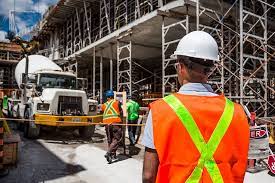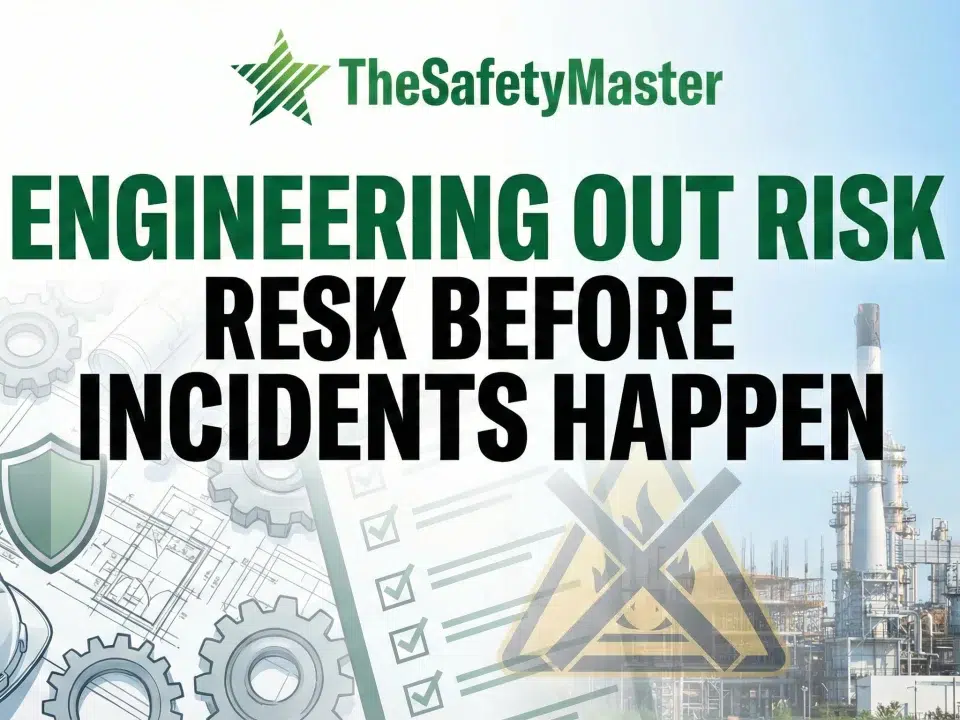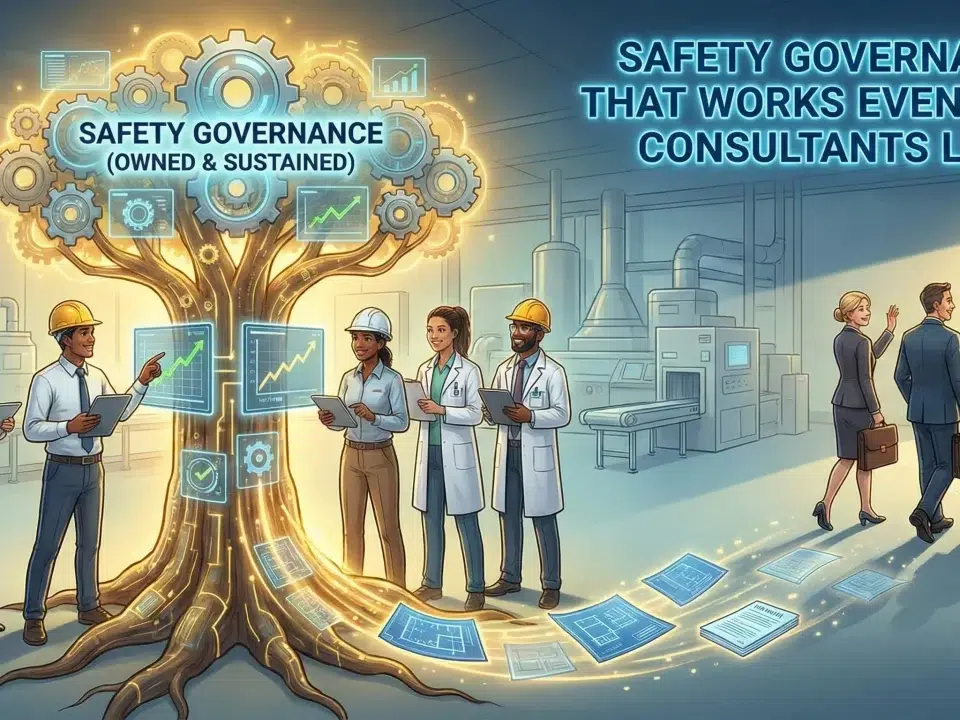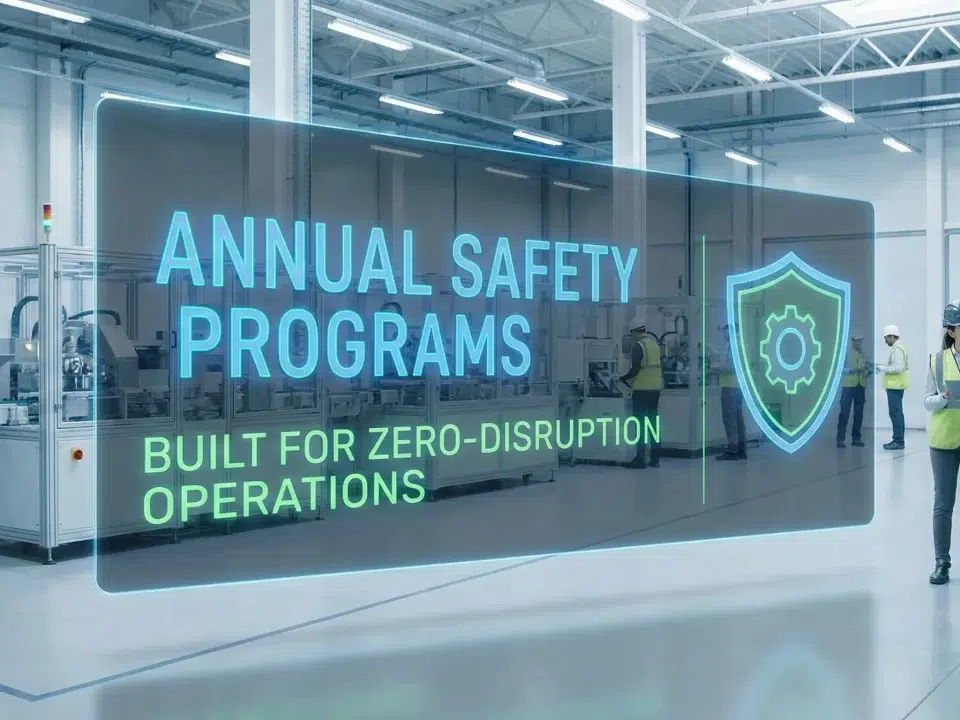Understanding the Importance of Contractor Safety in Todays Industrial Workforce

Comprehensive Safety Audit
May 15, 2023
The Importance of Ergonomics in the Workplace: A Comprehensive Overview
May 16, 2023Understanding the Importance of Contractor Safety in Todays Industrial Workforce
In today’s industrial workforce, safety should always be a top priority – especially when it comes to contractors. Unfortunately, accidents and injuries still occur far too often, and the consequences can be devastating. In this article, we’ll explore the importance of contractor safety and the steps that can be taken to ensure that everyone remains safe on the job. Readers can expect to gain valuable insights into the risks associated with contracting work and the practical strategies that employers can use to protect their workers. By the end of this article, you’ll have a clear understanding of what it takes to promote a culture of safety in your workplace.
Barriers to Contractor Safety and Possible Solutions
Safety hazards are prevalent in the industrial workforce, especially for contractors who often work in high-risk environments. The lack of awareness and safety training among contractors can lead to unsafe working conditions, resulting in injuries or even fatalities. One major barrier is the complexity of the work environment, as it can be challenging to create a safe working environment for contractors.However, there are possible solutions to overcome these barriers and improve contractor safety. Employers should conduct thorough risk assessments for potential hazards and implement appropriate control measures to prevent accidents from happening. Additionally, regular safety inspections and audits can help identify potential hazards that may have been overlooked, allowing employers to take corrective action promptly.
Training programs are also crucial to ensure that contractors understand how to work safely on-site. These programs should cover topics such as equipment handling, hazard communication, emergency response procedures, and compliance with safety regulations. By providing adequate training and resources to contractors, employers can reduce the risk of accidents occurring on their sites while creating a culture that prioritizes safety above all else.
Engaging Employees and Contractors in Promoting Safety Culture
Engaging Employees and Contractors in Promoting Safety Culture:One of the key components of ensuring contractor safety is to create a culture that prioritizes safety. This culture should involve not only the contractors but also the employees of the company. The goal is to promote safety as an essential aspect of daily work life, rather than a mere compliance requirement.
To achieve this, it’s essential to engage both employees and Contractors in promoting this culture. The management needs to demonstrate their commitment towards safety by providing necessary resources, training programs and positive reinforcement for safe behavior. It’s also important for employees and contractors to feel empowered to speak up when they spot unsafe practices or potential hazards.
By fostering a shared sense of responsibility towards safety, companies can build a collaborative work environment where everyone takes ownership of safety. The outcome is not only safer work conditions but also enhanced job satisfaction for all involved parties. In other words, creating a robust safety culture benefits everyone involved in the industrial workforce ecosystem.
Incorporating Safe Work Practices in Construction and Maintenance Workflows
Incorporating Safe Work Practices in Construction and Maintenance WorkflowsEnsuring safe work practices within construction and maintenance workflows is crucial for preventing injuries and fatalities. Employers must employ safety measures such as hazard assessments, personal protective equipment, and safety guidelines to prevent accidents. This will help keep workers safe while reducing the likelihood of project delays or additional costs.
Incorporating safe work practices into workflows can also reduce the possibility of errors. This includes making sure that employees are properly trained on procedures and equipment before starting their job duties. Proper training not only ensures their safety, but it also increases their productivity by reducing error rates.
Furthermore, by prioritizing safety in workflows, employers show a strong commitment to the well-being of their employees, which can foster a positive work environment. When employees feel valued and cared for by their employers, they are more likely to be engaged in their work and take pride in what they do.
Use of Technology in Enhancing Contractor Safety in Industrial Workforce
The use of technology in enhancing contractor safety in today’s industrial workforce has become increasingly necessary. Safety technologies such as body-worn cameras, drones, and sensors are common examples that have revolutionized industrial safety. These technologies provide real-time data on job sites and situations, alerting workers and supervisors of potential hazards.Body-worn cameras provide a record of work activities and can also serve as evidence when accidents happen. Drones are becoming increasingly popular for the inspection of hazardous areas that may be inaccessible to humans due to height or location. Sensors are used to monitor the health and safety conditions of workers such as temperature levels, air quality, or even the presence of toxic gases.
The use of technology has brought about a significant reduction in workplace accidents and injuries while also increasing productivity. With technological advancements like these, contractors can now work more safely while achieving higher efficiency levels on job sites. The incorporation of technology in contractor safety programs is vital to ensuring that contractors remain safe while continuing to deliver high-quality services on time and within budget constraints.
The Role of Contractor Training Programs in Ensuring Safety Standards
The Role of Contractor Training Programs in Ensuring Safety Standards: Effective training programs can be the difference between a safe and unsafe workplace. Employee and contractor training is crucial in creating a culture of safety. Training ensures employees understand the hazards associated with their job tasks and how to mitigate those risks.
Contractor training programs should have a strong focus on safety. The program should include OSHA regulations, hazard identification, personal protective equipment (PPE), emergency response planning, and equipment operation. A well-designed contractor training program that includes regular updates and reinforcement can reduce workplace injuries and fatalities.
Effective training programs build strong relationships between employers and contractors by providing mutual benefits through increased productivity, reduced costs, improved quality control, higher employee morale, and lower injury rates. Effective safety training increases awareness among contractors about the importance of proper job procedures and reinforces their role in ensuring the overall success of a project.
Strategies for Developing Effective Contractor Safety Programs
Strategies for Developing Effective Contractor Safety Programs:One of the critical steps in ensuring contractor safety is by developing effective safety programs tailored to meet the unique needs of contractors. An effective safety program should not only focus on reducing accidents but also empower contractors to take responsibility for their own safety. The following are strategies that can help in developing an effective contractor safety program.
First, it is essential to develop a culture of safety that emphasizes the importance of safe work practices throughout the organization. This can be achieved through regular training and communication between contractors and employees on how to identify and mitigate potential hazards.
Secondly, employers need to ensure that they actively involve contractors in the development and implementation of safety policies. This involvement will help support a culture of safety, increase buy-in from contractors, and ensure compliance with regulations.
Thirdly, it is necessary to conduct regular audits or inspections of worksites and equipment to identify potential hazards early enough before they result in accidents. Additionally, employers should provide resources such as personal protective equipment (PPE) to help reduce risks associated with specific tasks.
In conclusion, developing effective contractor safety programs requires a combination of proactive measures such as training, communication, involvement, auditing/inspection, and provision of PPEs. By investing time in these strategies, companies can create a safer work environment for their employees and contractors alike while increasing productivity by eliminating work disruptions caused by injuries or accidents.
The Benefits of Contractor Safety for Employers and Employees
The Benefits of Contractor Safety for Employers and Employees:Creating and maintaining a safe working environment for both employees and contractors is an important aspect of any industrial workforce. When safety protocols are prioritized, everyone benefits. Employers can experience fewer accidents, leading to increased productivity; employees are able to work confidently, resulting in higher job satisfaction.
A comprehensive contractor safety program ensures that not only employees but also contractors are fully aware of the potential hazards they face on the job site and trained on how to avoid these hazards. This can reduce the risk of accidents and injuries, leading to fewer lost days at work due to injury or illness. A sustainable safety program can also lead to lower insurance premiums as well as a reduction in legal liabilities for employers.
By implementing an effective contractor safety program, businesses can create a culture of safety that ultimately leads to happier employees and contractors who feel valued by their employer. This leads to increased job satisfaction which translates into more productive workers who are willing to stay with their employer longer. Overall, prioritizing contractor safety is not only the ethical thing to do but it also makes good business sense.
Our services include
Contractor Safety Management Training
Contractor Safety Management Implementation
TSM TheSafetyMaster® Private Limited
Unit No 221-451-452, SPL1/J, 2nd Floor, Sunsquare Plaza Complex, RIICO Chowk, Bhiwadi 301019, Rajasthan, India
Phone: +91 1493 22 0093/+91-124-4881109
Mobile: +91 7665231743/9413882016
Email: info@thesafetymaster.com




